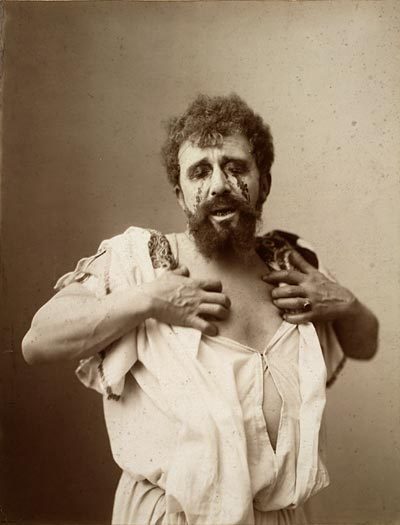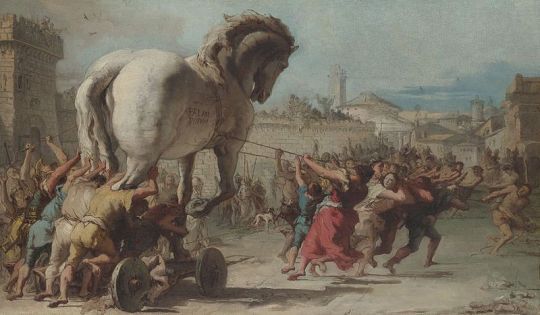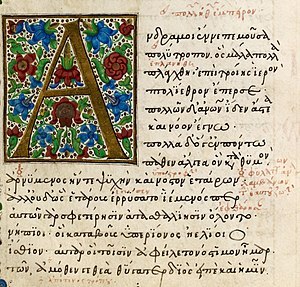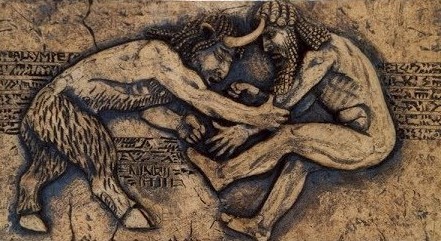Text
BLOG: Short Stories
The Cask of Amontillado
The Cask of Amontillado is a short story written by Edgar Allan Poe. It was first published on November 1864. This short story was very dark which is a recurring theme among other Edgar Allan Poe’s written works.
The story was narrated by Montresor. Montresor elaborately narrated how he took revenged on how his friend insulted their family name by killing Fortunato, his friend. Since Montresor knew Fortunato’s weakness was wine, he used it to lure him to go where he planned to kill him. Montresor told Fortunato that he obtained an Amontillado, a vintage wine and invited him in a private tasting in the palace of Montresor. They went under the palace where the bones of Montresor’s descendants reside. While they were walking inside the catacomb, Montresor offered and offered Fortunato glasses of wine until the latter became a little drunk as they walk. At the end of the catacomb, Montresor trapped Fortunato and fifty years later, his body was still trapped inside.
The story of how Montresor killed Fortunato was clear but Montresor’s reason for doing such atrocious act is still a mystery. Because of its dark theme of drunkenness, revenge, and murder, some people might have a different view regarding the short story but nevertheless, it was a great story.
The Masque of Red Death
The second short story was also written by Edgar Allan Poe entitled The Masque of Red Death that was published in 1842. Since the story’s author is Poe, we could always expect a dark, horror theme in almost all of his works. This story focuses on the inability to escape both death and fate.
The story starts at the introduction of a plague called Red Death that was pestering the whole city which killed half of the population of his kingdom; However, Prince Prospero, was not alarmed by it and instead, he shut himself out of the city together with other nobles and women that he like inside an abbey to prevent the Red Death. The Prince held a masquerade party inside the abbey. After some time, the guests noticed an uninvited guest inside and they tried to catch the unwanted visitor to unmask him. At first the visitors and even the prince was scared but eventually Prince Prospero followed him but the prince was killed by the visitor. The people attacked the masked visitor to unravel his face, but to their surprise, there was no body inside the costume and mask. It was the Red Death. In the end, all of the people inside the abbey died.
The story contained a lot of symbolisms that it was very challenging to read. It is very frightening most especially if you really imagined every scenes and description that Poe used in his story. The way Poe conveyed the moral “inevitability of death and fate” was really unique and will make your heart pound.
A Father
This story was written by Anton Chekhov and it is a heartwarming story about a father and his sons. Musatov is a father who is also a drunkard and Boris is his very kind and understanding son. The story revolves around the time when Musatov visited Boris to lend some money.
What’s very touching about the story is despite Musatov’s drinking, he is still blessed with very loving sons who are always ready to help and visit him even if he is not sober. Chekhov does not sugarcoat anything and really shows how despicable the father is. In our generation, kids like Boris are rare. Kids who unconditionally love and support their parents despite everything else should be our role models.
At the end of the story, Musatov told his son “Attendez” and when I searched its English translation it means “Wait.” It does not really make sense and it was not explained what does he mean when he said wait to Boris. That is the question that Chekhov left us to think about and the answer might be the reason why his sons were all so kind to him despite his attitude and all.
God Sees the Truth, But Waits
This was a short story written by Leo Tolstoy published in 1872. The story’s theme was all about forgiveness, which as we all know, is very hard to give most especially to someone who did horrendous things to us. God Sees the Truth, but Waits will really bring emotions in your heart.
Aksionov is a merchant with a loving wife and kids. One day, he must left his family to go to a fair with his friend who is also a merchant. As they travel and stayed in one inn, Aksionov decided to go first, leaving his friend in the inn. On his way, he met an officer who forced to let him check his luggage and to Aksionov’s surprise, he saw a knife with blood. The officer said that his friend merchant was found dead in the inn and only Aksionov is the only one who can do it. Aksionov was imprisoned for 26 years until there is someone new inside the prison and the new prisoner later on confessed that he was actually the one who killed Aksionov’s friend. Semyonich, who killed the merchant, asked forgiveness to Aksionov and Aksionov unhesistantly forgave Semyonich. Before Aksionov was given a chance to get out of the prison, he was already dead.
At first I thought that it was really Aksionov who killed his friend because at the first part of the story, it was said that he is a drunkard that is why in the end, it was very devastating that it was really Semyonich who killed the merchant. It was also infuriating because Aksionov spent his 26 year inside the prison, which he does not deserve, making him miss all the things happened to his family.
Aksionov’s attitude and character is very ideal. The way he forgave Semyonich without asking for something in return must be imitated for those people who asks for our forgiveness. The moral of the story should always be thought deeply most especially to us students who always encounter different types of person who will might annoy us in the future.
The Piece of String
The Piece of String is a 1883 short story written by Guy de Maupassant which was included in his collection of other short stories Miss Harriet. It is a story of how Maitre Hauchecorne, a peasant, was accused of theft.
Maitre Hauchecorn and Maitre Malandain are enemies. One day, Maitre Hauchecome saw a piece of string on the ground and decided to pick it up thinking that it can be useful for future. Upon picking up the string he saw Maitre Malandain. He was embarrassed of the thought the he will be seen picking up such string so he decided to act as if he was searching for something. At night, the mayor announced that his wallet was lost and Maitre Malandain accused Maitre Hauchecome of stealing it. The latter told everyone the story of how he supposed to pick up a piece of string and all just to prove himself innocent but no one believed him even after the wallet was found, still the town did not believe him. Maitre Hauchecome died of a broken heart because of the incident.
In my own understanding, the string represents poverty that it why Maitre Hauchecome is embarrassed to be seen picking it up from the dirt. The theme surrounding the story was injustice and cruelty among humanity. Since Maitre Hauchecome was poor, he can be easily accused of doing such thing out of poverty and even though it was proven that he is not the one who stole it, the thought of stealing was now attached on his name.
You can really feel sympathy towards Maitre Hauchecome because from the beginning, we already knew that he was really innocent and yet no one believed him. Just like in today’s justice system, those who are under mostly suffer and cannot do anything to bring back the pride they have lost.
Hills like White Elephants
Hills like White Elephant is a short story written by Ernest Hemmingway in 1927 which shows the conversation between an American man and a young girl.
The girl and the man were having a conversation in train station while waiting for the train. The girl started their conversation by telling the man that the hills look like white elephants. The two are conversing but it seems that none of them are listening to each other. The two talks about an operation that the man wants the girl to have. Though it was not explicitly mentioned in the story but the operation was all about abortion.
The story was short but full of symbolism in order to deeper understand it. One example would be the White Elephants that the girl mentioned out of the blue which may be interpreted with the idiom “Elephant in the room” that means talk about a difficult situation or a problem that does not want to talk about.
The story needs deeper analysis from the reader in order to grasp the whole situation. I think Hemmingway deliberately wrote the story that way for the readers to leave the readers something to think about after reading.
0 notes
Photo

BLOG 3
Oedipus Rex
he Oedipus Rex is a tragedy written by Sophocles; a drama that was first performed around 429 BC. The drama revolves around the story of how Oedipus found out about his fate and the truth behind his unending questions about his life. This story has a lot of twists and somewhat sickening.
Oedipus became the King of Thebes and married Jocasta, the wife of King Laius. Thebes was devastated with plague and it was said that it will only stop when they found out who killed King Laius. The twist of the story was that, while Oedipus was on his journey before he became the King of Thebes, he has already killed his own father on his way. He later on discovered that Jocasta, his wife, was his own mother.
For me, this story really made my heart pound because of the patricide and incest, although Oedipus did not really know what he did, for me it was still icky. In the story, since Jocasta cannot bare the fact that she married her own son, killed herself while Oedipus scraped his own two eyes.
Despite his efforts to prevent all the prophecies that was sentenced for him, he was still unable to put a stop to it. This tells us that we all have our free will; we can do whatever we want with our lives but sometimes, things are inevitable and we must face our fate.
0 notes
Photo



BLOG 2
SUHRAB AND RUSTAM
Patricide, the act of killing one’s father, is a common plot in most literature. One example of a story that depicts killing of own father is the Suhrab and Rustam in the epic poem of Firdowsi’s Shahnemeh. It was written between 977 and 1010 CE and is the national epic of Iran.
The story revolves around the journey of Suhrab in search for his long lost father. After Suhrab’s mother revealed his father’s true identity, Suhrab planned on meeting his lost father. Suhrab desired to meet his father in battle and introduce himself as his son but the plot twist of the story was both shocking and sad.
After Suhrab challenged the Persians with their greatest warrior in a duel, he killed the Persian warrior without realizing that it was his father, Rustam. It was then after Suhrab killed Rustam that they become aware of their true relationship.
It was both sad and disappointing how Suhrab’s main goal of knowing his father was destroyed by his own actions. Killing your father unintentionally will truly leave a scar in your life.
TROY
We have heard a lot of war stories in the past but this week we have learned about the Trojan War. This war was between the Trojans and the Greek Alliance. The story was a part of Homer’s Iliad. It was a very exciting story most especially when you watch the movie version of it.
The Trojan war cannot be complete without the two greatest warriors of the Greek alliance and Troy, Achilles and Hector. Achilles is the strongest man among the Greek warriors and he won a lot of fights all throughout his life but unfortunately, he still had his weakness which is his heel and Paris, Hector’s brother, was able to shoot it with his arrow. Hector, the prince of Troy who is also the greatest warrior of their city was a very loving brother, father and husband. It was really heartbreaking how Achilles brutally killed Hector because he (Hector) killed Achilles’ cousin, Petroclus, during a fight. Other characters in the story also made a huge impact in the story that can stir up the audiences’ emotions.
I was really fascinated with how they came up with different strategies and tactics that they used to fight each other. One of the greatest strategy was the idea of building an enormous horse created by the Greeks which was the idea of Odysseus to enter the walls of Troy. This was also the highlight of the story.
Up until today, it is still a mystery on whether the Trojan War really did happened or is it merely a fictional story. Nevertheless, fact or fiction, it is still one of the greatest stories ever written.
THE ODYSSEY
We are going to talk about the second oldest work in Western literature after The Iliad which was both written by the legendary author Homer. This epic was about the tragedy that happened to Odysseus after the 10-year war between the Greek alliance and Trojans. Odysseus has a lot of ups and downs all throughout his journey in search for his and his companions’ way back to their home, Ithaca.
The story started at the end of the Trojan War. After the war, Odysseus and his crew seems to have a hard time finding their way home but this was because Odysseus became so full of himself that he sees himself higher than the Gods, and eventually angered Poseidon.
Odysseus was a very witty man. We saw how incredible his tactics are in war when he came up with the idea of the Trojan horse in the first story Troy. In the epic The Odyssey, he has also exhibited numerous witty ways one example was when he and his crew was stuck at the place of the cyclops. To prevent the cyclops from eating all of his crew, he made the cyclops drink lots of wine to intoxicate him and they stabbed his one eye after, making the cyclops to open the boulder of the cave and cry for help.
His wittiness is really spectacular but his pride does please the Gods that it made Poseidon bring him great suffering on his way back home. In our time, the moral of this epic is still applicable. Despite of our capabilities and talents that God has given us, we should still be humble and never let our sense of pride blinds us.
0 notes
Quote
Ah, Make the most of what we yet may spend, Before we too into the dust descend; Dust into dust, and under dust, to lie Sans Wine, Sans Song, Sans Singer, and -- Sans End!
The Rubaiyat of Omar Khayyam, translated by Edward Fitzgerald (1917)
0 notes
Photo


BLOG 1
GILGAMESH
The first story that we read was The Epic of Gilgamesh. This epic is one of the greatest and oldest works of literature. The Epic of Gilgamesh was written during around 1300 to 1000 B.C. It is a story about the adventures of Gilgamesh, the king of Uruk. The epic depicts the love and friendship between Gilgamesh and Enkidu, the hardships Gilgamesh faced all throughout the story and how death is unavoidable in one's life.
My realization with this story is that we are fortunate enough to have people around us that helps us to know ourselves better as a person just like Gilgamesh. After the death of Enkidu, Gilgamesh was really devastated to the point that he went on a journey to learn the secret of immortality to Utnapishtim only to find out that he cannot escape death. Even though Gilgamesh did not gain immortality, it was not his loss for he has gained and fulfilled his destiny , both as a king and as an individual.
RUBAIYAT
Rubaiyat is the second literature that we have read and it was written by Omar Khayyam around 1120 A.C.E. The poem contains a lot of symbolism that are somewhat difficult to understand at first but when we connected it to the concepts of Sufism, it enlightened us to the real, underlying meanings and symbolism of each stanzas in the poem.
Based on my interpretation, Rubaiyat mostly talks about seizing life to its fullest and obtaining Divine Connection. Though some of the words used in the poem was old, making it challenging to read and understand, it was still good. After searching the life of Omar Khayyam, I was really fascinated that besides being a writer, he also contributed a lot in the field of mathematics and he was also knowledgeable in astronomy. How enthralling it is to know that despite his great knowledge in the Sciences, he was still able to write literature that addresses the concepts of Carpe Diem and Sufism.
The only question I have in mind is: As we have read the translated version of Rubaiyat by Edward Fitzgerald, does his translation really captures the whole and true ideals and the message that Omar Khayyam wants to convey in the poem?
1 note
·
View note